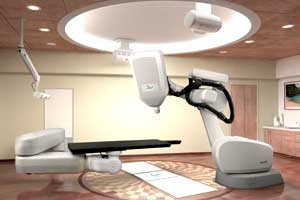Do I need prenatal diagnostics
How is your baby doing? In the close past the answer to this question could be given only after baby’s birth. But parents are impatient to know the answer as early as possible.
Not long ago parents had to wait till birth. But now prenatal diagnostics to a certain degree allows to get detailed information on their baby’s health even in 6 weeks after conception.
Prenatal diagnostics is not always salubrious as sometimes it leads to certain danger for a baby. This analysis is helpful for those parents who have specific reasons for anxiety. In this case the benefit of prenatal diagnostics is much greater than the risk connected with carrying out this procedure. Prenatal diagnostics is indispensible for the following groups of women:
- older than 35;
- women who have cases of hereditary diseases in their family or women who are carriers of such diseases;
- those who had infectious diseases, such as German measles or toxoplasmosis, as it can obstruct the fetal growth;
- women with unknown substances detected in their blood, that can be harmful for growth of a baby;
- those who had previous unsuccessful pregnancies and children with birth traumas;
Generally prenatal diagnostics does not detect any evident defects. In these cases an additional genetic expertise is necessary. The data obtained can be applied in making a decision, concerning future pregnancies as well.

If as a result of prenatal diagnostics fetal growth anomalies are detected, then the question of pregnancy continuation unavoidably arises. This decision is up to the family. Decision to save the pregnancy is usually made by those parents who are sure they will love their baby born with evident malformations, or those who are against abortions in any circumstances. Results of prenatal diagnostics will warn spouses of what they should expect and will give a family an opportunity to start emotional and practical preparations for accepting a baby.
Many make up their mind to interrupt a pregnancy when the test shows an anomaly that can be lethal or entail severe complications. In this case a consultation of a geneticist is necessary that will confirm the diagnosis.
Most of the families having necessary data, remembering useful advice of a geneticist or a doctor, try to start a new pregnancy with a hop that it will lead to better result. And this is quite possible.
Prenatal fetal treatment
In some cases a prenatal treatment of a fetus is possible. It includes; blood transfusion (serological conflict), surgery (for example, to perform urinary bladder drainage), enzymes or steroids prescription, which can contribute to lungs development of a fetus that can be born prematurely.
With the development of new technologies ever more types of prenatal surgery will be applied in medicine. However one should take into account that even confirmed by high-tech hardware prenatal diagnosis is not absolute. A very hasty decision to interrupt pregnancy sometimes results in abortion of a healthy fetus.
Posted in Pregnancy and Childbirth | No Comments »
